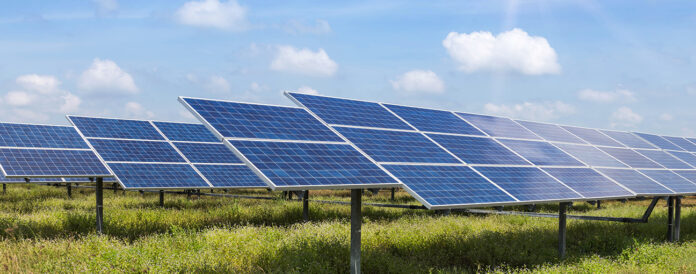The Economic Coordination Committee (ECC) has approved amendments to Pakistan’s net-metering regulations, revising the buyback rate for surplus solar electricity to Rs. 10 per unit—a move aimed at reducing the growing financial burden on grid consumers.
The decision, taken in a meeting chaired by Finance Minister Muhammad Aurangzeb, follows concerns over the rapid increase in solar net-metering users, which has shifted costs onto conventional electricity consumers. The new framework allows the National Electric Power Regulatory Authority (NEPRA) to periodically adjust the buyback rate, ensuring adaptability to market conditions.
The amendments, however, will not affect existing net-metered consumers with valid agreements under NEPRA’s 2015 regulations. Their contractual rates will remain intact until their agreements expire. Under the revised billing mechanism, exported solar units will be purchased at Rs. 10 per unit, while imported units will be charged at peak/off-peak rates, inclusive of taxes and surcharges.
Pakistan has witnessed a surge in solar net-metering adoption, with registered users increasing to 283,000 by December 2024—up from 226,440 just two months earlier. Installed capacity has jumped from 321 MW in 2021 to 4,124 MW in 2024, reflecting a shift toward solar power. However, this shift has also resulted in a Rs. 159 billion financial impact on grid consumers, projected to reach Rs. 4,240 billion by 2034 without regulatory intervention.
Government officials argue that net-metering users—predominantly urban and affluent households in major cities—avoid fixed electricity charges such as capacity costs, disproportionately increasing tariffs for conventional consumers. The new measures aim to rebalance the financial impact while ensuring the sustainability of the national power grid.
Other ECC Decisions
The ECC also approved:
- Export exemptions for potassium sulfate fertilizer from Gwadar Free Zone, allowing M/s Agven Private Limited to export up to 10,000 tons annually until December 2025.
- Multiple Technical Supplementary Grants (TSGs), including:
- Rs. 250 million for ICT-based educational initiatives under the Ministry of Federal Education and Professional Training.
- Rs. 220 million to boost SME development through the Ministry of Industries & Production.
- Rs. 36.099 million for Pakistan Rangers (Sindh) helicopter maintenance.
- Rs. 15.4 million for Frontier Corps Balochistan (North) helicopter maintenance.
- Rs. 670 million under the Sustainable Development Goals Achievement Programme (SAP) for the ICT Administration.
Additionally, the committee reviewed inflation trends, noting a decline in key indicators such as the Consumer Price Index (CPI) and food inflation, which officials attributed to fiscal discipline, improved supply chains, and targeted subsidies.
The ECC also discussed a pending gold case under the Customs Reward Rules, 2012, directing the Ministry of Interior to justify delays and obtain a legal opinion before resubmission.
The revised net-metering framework marks a critical policy shift in Pakistan’s energy landscape. While it preserves incentives for solar adoption, the government aims to mitigate cost imbalances, ensuring a fair distribution of electricity expenses across all consumers. The final implementation will depend on NEPRA’s approval and the Cabinet’s ratification in the coming weeks.
























